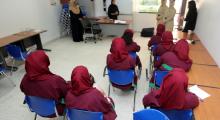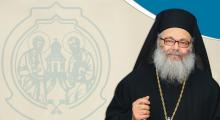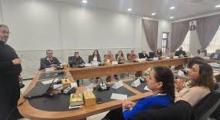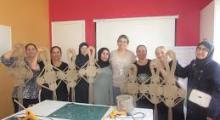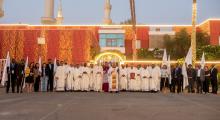Issued by the Catholic Center for Studies and Media - Jordan. Editor-in-chief Fr. Rif'at Bader - موقع أبونا abouna.org
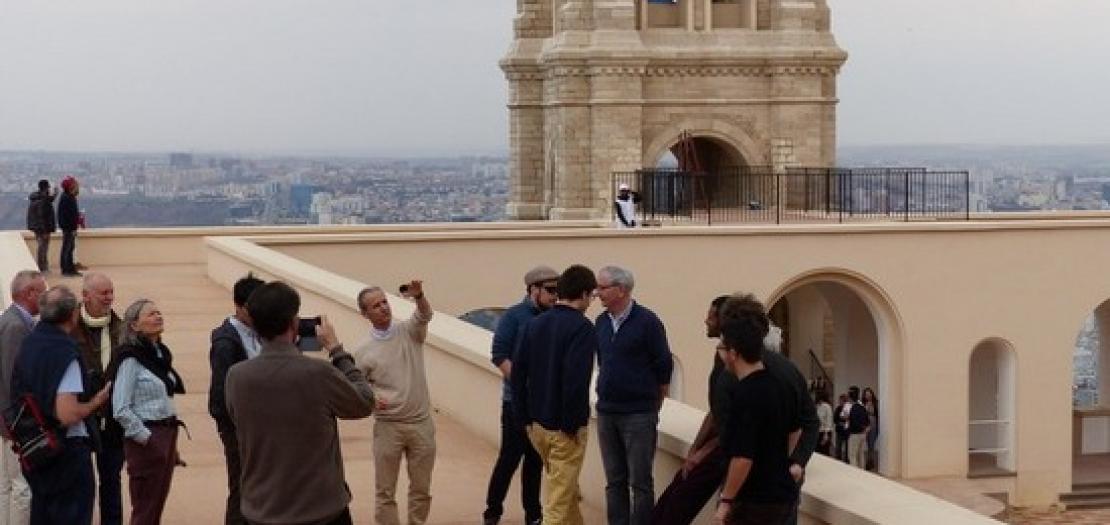
The Algerian Catholic Church has fixed May 8 for celebrating the feasts of the recently beatified Bishop Pierre Claverie and his companions, who were assassinated along with thousands of others during Algeria's Black Decade. Returning from Oran, Mission de France seminarians share their insights about the local church and the meaning of its presence in a Muslim majority nation.
The Mission de France chose a new destination for this year's Holy Week mission.
"My fellow Jesuit seminarians spent Easter in Rome and those from my own Diocese of Versailles went to Lourdes while I went to Tlemcen and Oran," jokes Ambroise, 29.
He says he was quite unsure about going to Algeria, a country in great turmoil, which has experienced a series of gigantic anti-government demonstrations since February.
A former educator of mentally handicapped children, he now regards his stay in Algeria as proof that "meeting with Christ is not limited to Christian places."
On April 18, six out of the eight seminarians currently in formation with the Mission de France and four of their formators all traveled to Algeria.
In small groups, they were hosted by the Catholic communities of Tlemcen, Mostaganem and Oran for the three days before Easter.
Then they all gathered in Oran to celebrate Easter as well as for a series of meetings with Sub-Saharan migrants and Algerians, particularly women and children, who meet at the diocesan center and take part its many activities.
They also spent a week studying Islam, Algeria and interreligious dialogue.
This overseas experience is an important stage in their formation process.
"Living in the country of another person allows you to displace yourself," comments Father Henri Védrine, the seminary superior.
Father Védrine believes that this "tradition of the Mission de France" is very similar to the thinking of Bishop Pierre Claverie of Oran, who was assassinated in 1996 during the Black Decade, and who was concerned that people should "break out of our internal and external bubbles."
MAY 8 FEAST DAY FOR BISHOP PIERRE CLAVERIE AND COMPANIONS
The six future priests also listened to a talk on the work of Pierre Claverie and Brother Christophe, one of the Tibhirine monks who were abducted and killed in 1996, enabling them to learn more about the 19 martyrs, who were beatified on December 8, 2018 and whose feast day has now been fixed for May 8.
They were men and women religious "who witnessed to the Gospel by their lives and their humanity and not by their deaths," Ambroise said.
"(In his talk), Father Jean-Marie Lassausse presented Brother Christophe to us in all his fragility, with his doubts as well as his great faithfulness to Christ, the Church and the Algerian people," he continues.
"Ultimately, a martyr – whether a blessed or a saint – is not an extraordinary person but an ordinary person who has tried to live out the Gospel in an extraordinary context," he says. "It is a beautiful lesson for us, who will not all become a Martin Luther King or a Mother Teresa but who bring the Word of God alive by being ourselves."
Previously, Antoine, who is in the first year of formation after studying as an engineer knew only a little about Christian de Chergé and Pierre Claverie.
As a result of the visit to Algeria, he now associates them with "all the others who did not die and who have welcomed us and continued to ensure a discreet presence among the Algerians for forty or fifty years in some cases."
WITNESS OF THE ALGERIAN CHURCH
Going further, the young seminarians are now able to meditate on the witness of the whole Algerian Church.
"It is a precarious Church," said Anton, 30, another trained engineer.
"Many religious are elderly," he said. "And if Algeria decides to welcome fewer African students, it will be the faithful who will melt like snow under the sun."
"Christians there are not on autopilot as they are in France!" he said.
Nevertheless, the Church which exists in a country with a large Muslim majority has much to teach "French Catholics," the seminarians say.
"Clericalism starts when priests no longer point to Christ but mistake themselves for Christ. In Algeria, the Church instead identifies more with John the Baptist, who prepares the ways of the Lord," said Anton, who believes that this way of looking at things would "teach us a great deal in France."
Reciting the Our Father in Arabic during the mass also caused Antoine to reflect "on the issue of language."
"For sure, in France, we all speak French but that does not prevent me from often asking myself what to do so that what I experience will also be heard in the language of the other," he said.
"In other words, so that what we are celebrating also speaks to those who are not familiar with the Christian faith," he said.
What also struck Ambroise was the commitment of Sub-Saharan students to animating parishes.
"In the end, what holds the Church together?" he asks. "The good will of two or three people, most of whom are not priests or religious but who give their time. In France, we no longer notice this!"
Ambroise, who grew up in Sartrouville in the Yvelines region south of Paris, said that Algerians also have much to teach us in "their welcoming of cultural, ethnic and religious diversity."
"When you arrive there, this diversity hits you in the face," he said. "But they experience it on a daily basis. And they don't seem unhappy about it!"


